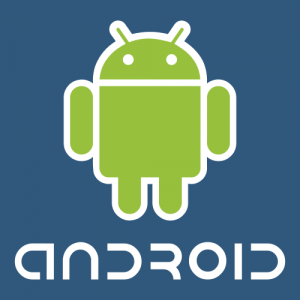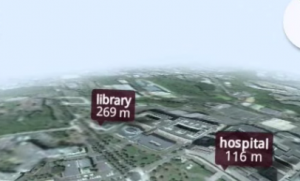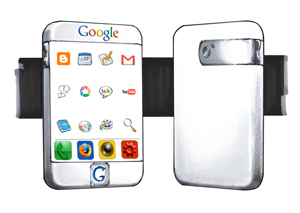 Talking down Google’s Android mobile operating system has become pretty easy of late: An incomplete and buggy SDK, favoritism towards select developers, a general lack of transparency, and valid concerns that the platform could become fragmented and that Google has ceded too much control to carriers.
Talking down Google’s Android mobile operating system has become pretty easy of late: An incomplete and buggy SDK, favoritism towards select developers, a general lack of transparency, and valid concerns that the platform could become fragmented and that Google has ceded too much control to carriers.
Yet, for the most part, the initial excitement and optimism over the long term potential of Android remains. Not least for 21 year-old Nicolas Gramlich, a computer science student at the University of Applied Sciences Mannheim in Germany, and founder of anddev.org, an online community for Android developers. “Android’s main attraction is its simplicity”, says Gramlich, which enables the rapid development of “feature-rich applications”.
See also: Interview: zintin CEO talks iPhone, Android and mobile future
 “One can create an application that uses Google Maps, get the current GPS-position or read out the accelerometer within 10 lines”. The integration with Google Maps is especially tight, he says, something that doesn’t currently exist on other mobile platforms. And Gramlich should know. His first Android effort is a free navigation app called AndNav!.
“One can create an application that uses Google Maps, get the current GPS-position or read out the accelerometer within 10 lines”. The integration with Google Maps is especially tight, he says, something that doesn’t currently exist on other mobile platforms. And Gramlich should know. His first Android effort is a free navigation app called AndNav!.
In a short Q&A with last100, Gramlich discussed the slow progress Google appears to be making in updating the Android SDK, the company’s relationship with the developer community, competition from iPhone, and more. Read the transcript, edited for space and clarity, after the jump.
What kind of apps do you think Android will encourage? Give us examples of some that you know of that have particularly impressed you.
We will definitely see a lot of location-aware and social-networking applications, that will try to be the social app for Android. I’ve seen so many that I cannot even count them. Two apps really stayed in my mind.
 One of them is MoseyCode from Tom Gibara, which is a 2D-Bar Code Reader that is a kind of interactive bridge between the physical and digital world. For example, if you film a bar code on a movie-poster you will directly see a trailer overlayed to that poster.
One of them is MoseyCode from Tom Gibara, which is a 2D-Bar Code Reader that is a kind of interactive bridge between the physical and digital world. For example, if you film a bar code on a movie-poster you will directly see a trailer overlayed to that poster.
The other application is Enkin, which went through the news some months ago. Enkin wants to reinvent navigation on Android devices, by overlaying location-based content on the camera-image, bridging the gap between reality and classic map-like representations. It combines GPS, orientation sensors, 3D graphics, live video, several web services, and a novel user interface, into an intuitive and light navigation system for mobile devices.
The Android Developer Challenge (ADC) seemed a great way, and incentive, to encourage developers to the platform – and away from Apple’s pending iPhone SDK – but it seems to have backfired lately with the delayed SDK fiasco. What thoughts do you have on Google’s Android developer relations?
The Android Developer Challenge (ADC) encouraged many people to spend a lot of time [working on Android], some even losing their jobs. But in the end, 25k dollars is not too much for months of hard work, in a small team.
The long gap since the last SDK unfortunately did not add to Android’s popularity, as developers are getting more and more frustrated, having to cope with the bugs and missing features of the last feature-introducing public SDK from February. It’s pretty hard to say why Google is behaving in such a closed way, instead of being more open as everybody thought in the beginning. Maybe it’s the companies behind that are pedaling Google to serve them before the developers. Reading the Google Groups closely and staying in touch with some of the developers, I can say that not everybody inside the Android team is fine with being so closed.
In my opinion the next SDK has to be overwhelming to get Android back on the track, where it belongs – straight to the top.
Some developers we’ve spoken to have avoided Android or abandoned it already because, to-date, there are no phones in the wild that they can test on, so in a sense it’s still vaporware. Is this an issue?
The emulator is an excellent tool to test your Android software with. Since the last SDK-update, you can easily run multiple emulators at once and let them communicate [with each other]. On the real-world side it is true, there are only unofficial ports to existing devices, which usually do not include all features (like 3G, camera, calls, GPS etc.). Maybe Google is preparing a developer-device together with the next SDK-update. Indeed that would be really flashy!
 Should Google have produced a Gphone (Android powered phone) of their own? Do you think they will do?
Should Google have produced a Gphone (Android powered phone) of their own? Do you think they will do?
We have rumours saying yes and no. What I personally think is that Google won’t as they always have been a software company. Other companies in the Open Handset Alliance, like HTC, are producing excellent devices non-stop.
Since mobile carriers can change Android and even block access to specific APIs, do you think the platform may become fragmented, with different flavors and UIs, and in some instances become a lot less open?
Fragmentation is really dangerous in my opinion. Developers will be freaking out, porting their apps to 10 sub-Androids, or even being not able to do that because of blocked APIs. I hope the Open Handset Alliance will find a clever way [of stopping this happening] in the end.
As a result, will applications face compatibility problems?
We cannot know that yet, but yes it could be possible.
How do you see Android competing against the iPhone?
Knowingly over bending I can say “Android is for the masses, iPhone for the rich” 😉 There will be a great variety of Android devices all over the world, where there will always be just the iPhone.
What do you think of Nokia’s move to purchase Symbian and open source it and offer it for free? Does it take the shine off Android?
I think Android will win over Symbian, as there are so many companies behind the Open Handset Alliance.
Finally, if Google succeeds with Android, how will the mobile landscape be different?
Android will very probably be the break-through for mobile Internet in many parts of the world and therefore will be a big milestone in mobile.
Thanks Nicolas for taking the time out to talk with last100!

While there are merits to his argument, android as a product suffers from the same lack of usability that many open-source projects do – It doesn’t have a clear starting point for people. If a person asks what an iPhone is, you can place one in their hand. You can’t do that with android yet. That’s a crucial step in making it a solution for the masses – it has to exist in a simple form. From there, other variations can exist as an option for users who reach a level expertise with android.
Many open-source projects that I’ve been involved with are more successful once they create a simple starting point for new people to get involved. This will be even more important for making an open source project a tool ‘for the masses.’ I think that creating a physical android phone will be a crucial first step.
I think Android has great promise, for exactly the reasons suggested above: it’s open source, and can therefore find its way onto a wide variety of devices quickly. In many parts of the world, mobile phones are ubiquitous while Internet is considerably more rare; by bringing good Internet capability to these markets, Google and its partners are putting themselves in front of a new audience.
With Elgg, we’re working under the assumption that mobile Internet is going to dramatically grow in popularity over the next couple of years. As a result, we’ve built the ability to host multiple mobile interfaces directly into the core – an Android phone might have different capabilities to an iPhone, which might be different to a Blackberry. I don’t think these platforms will reach a state of compatibility for quite some time (look how long it’s taken for the desktop web). However, Android may be a great step towards establishing a standard level of functionality.
All this said, I worry. Google have flubbed OpenSocial, more than I think many people realise – it’s beginning to dawn on people that it was a marketing effort more than anything else. If the SDK for Android is lacking, the Open Handset Alliance is going to lose the support of outside developers. I wonder if the members of the Alliance have better tools internally?
Great interview with Nicolas as I had an interview with him as well, I also linked to this page from http://www.googleandblog.com/plusminus-android-developer-nicolas-gramlich/367/ as I really liked the quote of “Android is for the masses, iPhone for the rich“
,Michael Martin
http://www.googleandblog.com/